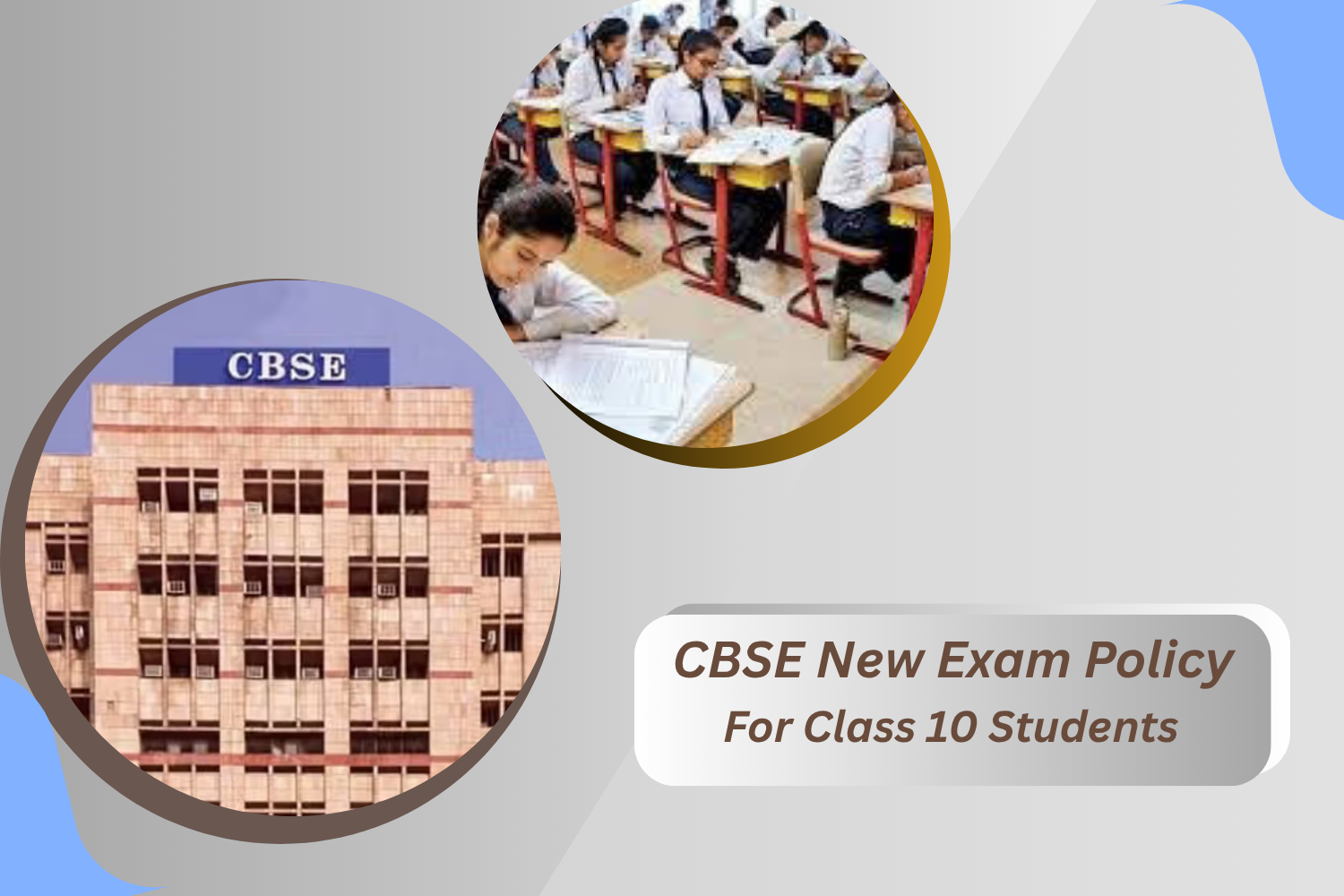CBSE's Big Update For Class 10 students
Ankita
. 4 min read
The Central Board of Secondary Education (CBSE) has announced a significant change to the Class 10 examination system, effective from 2026, allowing students to appear for board exams twice in a single academic year. The move aims to relieve exam pressure and provide students with an opportunity to improve their performance without waiting an entire year.

During registration (List of Candidates or LOC), which must be finalized by September 2025, students must indicate their preference for appearing in one or both phases. Once the subject list is submitted, no changes will be allowed, although students may choose to skip certain subjects in one of the phases. Examination fees must be paid upfront during LOC submission and are non-refundable, even if a student decides not to appear in a particular phase later. Internal assessments and practical exams will be conducted only once during the academic year, and these scores will be valid for both phases.
In a significant move aligning with the National Education Policy (NEP) 2020, the Central Board of Secondary Education (CBSE) will introduce twice-a-year board exams for Class 10 students starting in 2026. The move aims to reduce the stress of “one-shot” final exams and provide students with a second chance to improve their scores within the same academic year.
What are the new changes?
Two Board Exams in One Year
First exam (February–March): Mandatory for all students.
Second exam (May): Optional for those who want to improve their marks or have a compartment.
Students can appear in the May exam for up to 3 subjects.
Internal Assessment
Conducted only once in the academic year.
Internal marks will not change even if the student appears for both exams.
New Question Pattern
Focus on competency-based questions and MCQs.
Long, descriptive answers are not as important.
Up to 50% of the paper may be objective or skill-based.
Exam-Day Rules and Security
CCTV monitoring, biometric checks, and stringent frisking during exams.
Only necessary items are permitted, such as the ID, admit card, and clear stationery.
Electronic devices, bags, books, smartwatches, and cell phones are prohibited.
Rules violations will be treated as unfair tactics.
Why the Change?
To reduce stress by avoiding high-stakes, one-chance exams.
To promote flexible learning and align with NEP‑2020 recommendations.
Early implementation of modular exams, competency-based evaluation, and digital assessment tools.
Aligns with NEP 2020 Goals to support the National Education Policy's focus on flexible learning and stress-free education.
For better academic planning.
Key Features
Every year, there are two board exams, the first in February (mandatory) and the second in May.
The second exam is for improvement or classification in up to 3 subjects.
The highest score from either attempt will be considered for final results.
Internal assessment will be conducted only once in the academic year.
Emphasis on MCQs and competency-based questions, reducing long answers.
Strict exam-day rules with biometric checks and CCTV monitoring.
First exam results in April, second exam results in June.
Aligned with NEP 2020 to reduce pressure and promote flexible learning.
When will it start?
The new CBSE Class 10 exam system will start from the 2026 academic session.
Students will appear for the first exam in February 2026, which is mandatory.
The second exam will be in May 2026 for improvement or compartmentalization in up to 3 subjects.
Results of the first exam will be declared in April, and the second in June.
This change gives students a second chance and reduces exam pressure.
Final Thoughts
The new CBSE Class 10 exam system starting from 2026 is a progressive step aimed at reducing academic stress and offering flexibility to students. By introducing two board exams per year, CBSE ensures that students have a fair chance to improve their performance without losing an academic year. The National Education Policy (NEP) 2020's objectives are well-aligned with the emphasis on competency-based questions, and a stress-free methodology change marks a shift towards a more student-friendly and flexible examination system.
More Stories from
How did India respond to Donald Trump's 25% tariff penalty on India?
Trade tensions between the United States and India have sharply increased as a result of this recent development. Know how India responds to Donald Trump's 25% tariff penalty on India.
Geoffrey Hinton's AI Warning: The Most Dangerous Invention Ever
AI is both beneficial and dangerous, depending on how it is developed, deployed, and regulated.
Unbelievable Facts about World History that will surprise you
Human history and the natural world are filled with mysteries, marvels, and strange truths that challenge our understanding. In this article, we will explore some unbelievable facts about world history.
Why skill-based hiring is gaining importance over degrees?
Skill-based hiring vs Degree, which matters first? what you can do” matters more than “what degree you hold.”
The Hidden Secret of the Great Pyramid’s exposed
With the development of scientific instruments and technology, each day, discoveries about the world are surprising us





